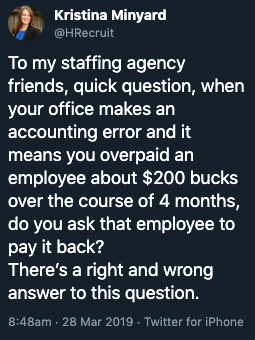A big announcement yesterday over at Ford where 7,000 or so white-collar workers will be getting laid off. For generations of automotive families, this is really anything new. You grow up knowing about once every ten years, the big autos will do some ‘right-sizing’ or reorganizations. The reality is, and other industries are much different, auto industries hire in good times like your drunk Uncle Lou buys drinks at the bar after he cashes his income tax return check!
In good times, there is nothing better than working in the automotive industry. Everyone gets hired for good wages, bonuses are good, and they throw money around like it’s monopoly money. In bad times, they ‘right-size’ and it’s not targeted, it’s pretty much we need to cut 10,000 people, make it happen!
Ford CEO Jim Hacket said this layoff is different, it’s not, but to prove the point he also said this:
He acknowledged saying goodbye to colleagues is “difficult and emotional.”
“We have moved away from past practices in some regions where team members who were separated had to leave immediately with their belongings, instead giving people the choice to stay for a few days to wrap up and say goodbye,” he wrote.
Wow, really!?! Thanks, Jim!
Honestly, though, it is a bit more humane, right? Basically what you say when you walk someone out immediately during a layoff is this:
- Hey, you no longer have a job but thank you for all those years of your life and discretionary effort you gave!
- Also, we don’t trust you, so get the hell out, NOW!
- Also, if you know of any younger workers who can do what you do, but for 30% less, please refer them to us!
Now, I am not saying Ford is laying off older workers and keeping younger workers. That would be slanderous, and I would never say such a thing! You can look at the data for yourself! It is a bit ironic though how white-collar layoffs tend to impact higher paid, more experienced workers. Turns out experience only matters to a certain salary point, then we are mostly the same in terms of productivity and knowledge.
No, Ford is in a very competitive industry and very fast-changing industry, and while all these ‘more experienced’ workers made us a lot of money, we now need to hire a different set of skills for our next generation of products. We no longer need all these mechanical engineers (true) and we need many more electrical and computer engineering skill sets (also true). Also, we probably need less more experienced finance, human resources, marketing, and operations folks as well, for these new more technical products we are creating.
So, back to the actual layoffs. Do you agree with Hackett (no relation, since my name, is “Sackett” with an “S”, and not an “H” but I see the confusion if you’re dumb) on his layoff approach of treating the Ford employees a bit differently and letting them close up shop and not walk them out immediately?
My take:
This should be an individual management decision. Your manager knows if you’re a terrorists or not. If she believes you can act like an adult and not sabotage anything on your way out, she should be able to make that call. If she believes you’re a problem, she should also be able to make that call on walking you out immediately.
I don’t believe this should be an all or nothing approach. I’ve seen people who have done some very bad things when given the chance to ‘pack up shop” on their way out. When you take the livelihood way from a person, you really don’t know how they’ll react. Some will become desperate and take anything they can get, staplers, information, etc.
Most, the vast majority, will be sad and grieve but also be able to handle this news in a respectful manner, knowing they’ll probably need that manager reference to land their next spot.
Layoffs suck, even when done for the best reasons to save the jobs of thousands of others. They just suck. I feel awful for those Ford employees having to go through this, just as I did for the GM employees who had to go through this at the end of last year. Organizations are living, breathing things, and as such, tend to make the same mistakes as well do in good times and bad.

